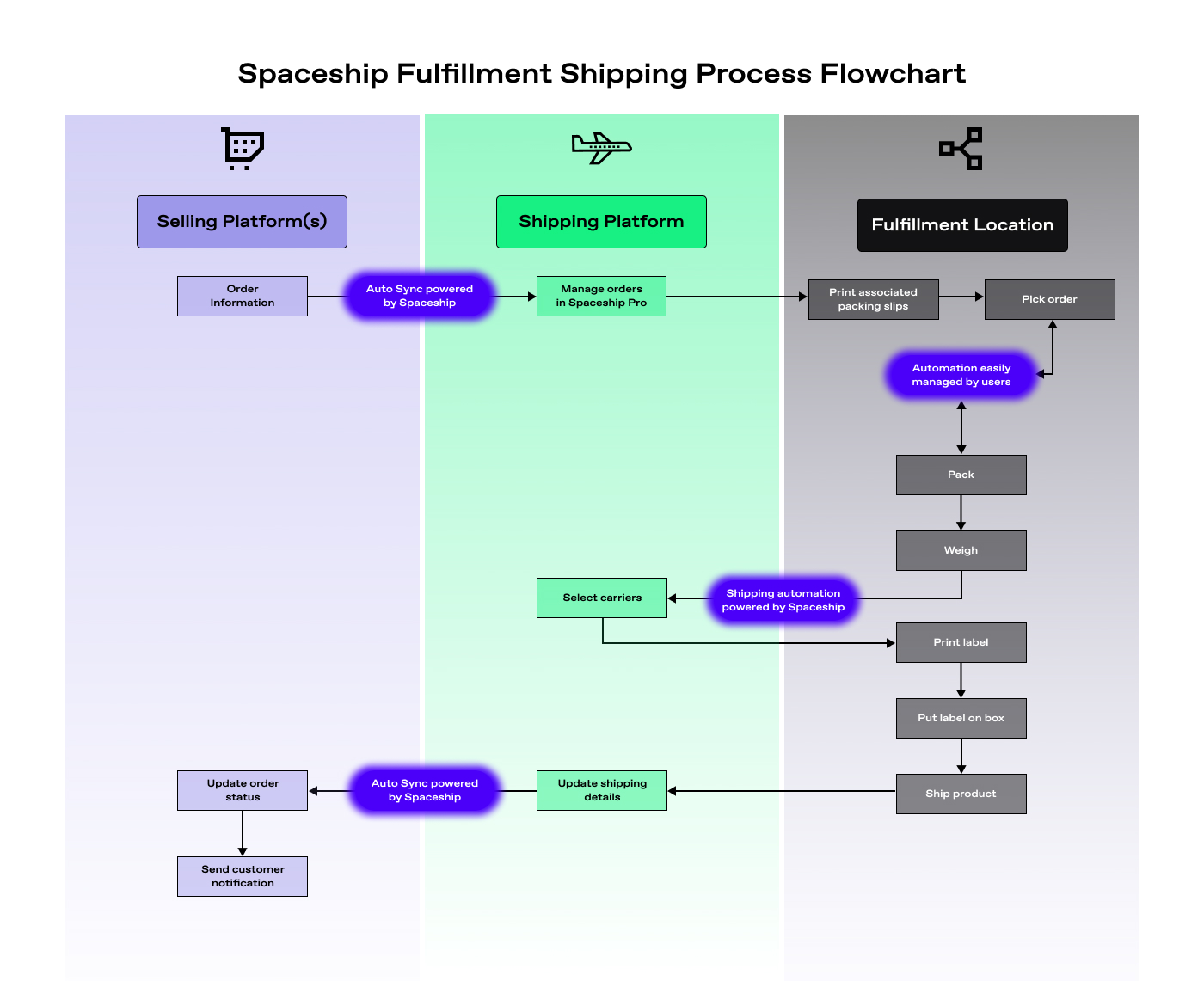
In today’s rapidly evolving business landscape, small businesses are flourishing, thanks to the growth of eCommerce and the increasing preference for online shopping. However, managing eCommerce fulfillment efficiently can be a daunting task for small business owners who lack the resources and infrastructure of larger enterprises. This article will delve into the concept of small business fulfillment and explore how it can be streamlined to boost customer satisfaction, improve operational efficiency, and drive overall success.
What is Small Business eCommerce Fulfillment?
Small business eCommerce fulfillment refers to the end-to-end process of receiving, processing, and delivering customer orders. It encompasses everything from inventory management and order processing to packing, shipping, and handling returns. For small businesses, getting this process right is crucial, as it directly impacts customer retention and word-of-mouth referrals.
4 Challenges Faced by Small Businesses
- Limited Resources: Unlike their larger counterparts, small businesses often operate on tight budgets and have limited staff and space. As a result, handling fulfillment in-house can become overwhelming and hinder business growth.
- Seasonal Fluctuations: Many small businesses experience seasonal fluctuations in demand, which can lead to unpredictable spikes in order volumes. Managing these fluctuations efficiently is vital to avoid stockouts or overstock situations.
- Time Constraints: Small business owners wear multiple hats and may find it challenging to allocate time and effort to manage the intricate fulfillment process effectively.
- Shipping Costs: Smaller businesses may face challenges negotiating favorable shipping rates due to lower shipping volumes compared to larger companies.
4 Benefits of Outsourcing Small Business eCommerce Fulfillment
One solution that has emerged as a game-changer for small businesses is outsourcing fulfillment to third-party logistics (3PL) providers. Here are some benefits of this approach:
- Cost Savings: By outsourcing fulfillment, small businesses can avoid hefty upfront investments in warehouse space, equipment, and technology. 3PL providers offer scalable solutions, allowing businesses to pay only for the services they use.
- Expertise and Technology: Reputable 3PL companies are equipped with advanced fulfillment technology and expertise, ensuring accurate and efficient order processing. Small businesses can leverage this expertise without investing in expensive systems.
- Faster Shipping: 3PL providers have multiple distribution centers strategically located, enabling faster and cost-effective shipping options, which can lead to improved customer satisfaction.
- Focus on Core Competencies: Outsourcing eCommerce fulfillment allows small business owners to focus on core business activities like marketing, product development and customer engagement, leading to overall business growth.
Spaceship Fulfillment offers advanced techonology to let e-commerce owners control over the fulfillment process online. Just a few clicks needed to book the inventory and change the product packing rules instantly, plus comparing internal carriers online to find out the best-fitting shipping solutions.
Connect with Spaceship Fulfillment.
Get 30 days free storage when you book demo.
Choosing the Right eCommerce Fulfillment Partner
Selecting the right 3PL partner is crucial for a successful fulfillment strategy. Here are some factors to consider:
| Experience and Reputation | Look for a 3PL provider with a proven track record of serving small businesses in your industry. Check online reviews and testimonials to gauge their reputation. |
| Technology Capabilities | Ensure the fulfillment partner uses state-of-the-art technology that integrates seamlessly with your online store or order management system. |
| Scalability | As your business grows, your fulfillment needs will also evolve. Choose a partner that can scale their services to accommodate your increasing order volumes. |
| Shipping Options | Evaluate the 3PL provider’s shipping network and options to ensure they can meet your customers’ delivery expectations. |
| Customer Support | Effective communication and support are critical. Choose a 3PL partner that offers responsive customer service to address any issues promptly. |
Learn More: How to Choose the Right Fulfillment Solution: China Fulfillment vs US Fulfillment
5 Best Practices for Small Business Fulfillment
To optimize the fulfillment process, small businesses can adopt these best practices:
- Real-Time Inventory Management: Utilize inventory management software to track stock levels in real-time, minimizing the risk of stockouts and overselling.
- Automate Order Processing: Implement automated order processing to reduce errors and save time. This can include automated order confirmation emails and shipping notifications to customers.
- Bulk Shipping Discounts: Negotiate shipping discounts with carriers or through your 3PL partner to reduce shipping costs.
- Offer Multiple Shipping Options: Provide customers with various shipping options to cater to their preferences, such as standard, express, or same-day delivery.
- Transparent Returns Policy: Clearly communicate your returns policy to customers, making the process hassle-free and fostering trust.
Learn more: eCommerce Fulfillment 101: A Comprehensive Guide to Choosing the Right Strategy for Your Business
Conclusion
Small business eCommerce fulfillment is a critical aspect of providing excellent customer experiences and fostering business growth. By outsourcing fulfillment to a reliable 3PL partner and implementing best practices, small businesses can streamline their operations, reduce costs, and focus on what they do best: delivering exceptional products and services to their customers. Embracing effective fulfillment strategies will undoubtedly lead to higher customer satisfaction, increased loyalty, and long-term success in the competitive e-commerce landscape.
eCommerce Fulfillment FAQ
What is small business fulfillment and why is it important?
Small business fulfillment is the entire process of handling customer orders, from receiving them to delivering the products. It is crucial for customer satisfaction, inventory accuracy and streamlining operations.
What are the challenges faced by small businesses in managing fulfillment in-house?
Small businesses face limited resources, seasonal fluctuations, time constraints and difficulty negotiating favorable shipping rates.
How can small businesses benefit from outsourcing fulfillment to third-party logistics (3PL) providers?
Outsourcing to 3PL providers saves costs on warehousing and technology, offers expertise in efficient order processing and provides faster and cost-effective shipping options.
How do I choose the right 3PL partner for my small business?
Consider their experience, technology capabilities, scalability, shipping options and customer support.
What are the best practices for small business fulfillment?
Implement real-time inventory management, automate order processing, negotiate shipping discounts, offer multiple shipping options and communicate a transparent returns policy.
How can small businesses benefit from advanced fulfillment technology used by 3PL providers?
Advanced technology streamlines processes, reduces errors and improves customer experience.









